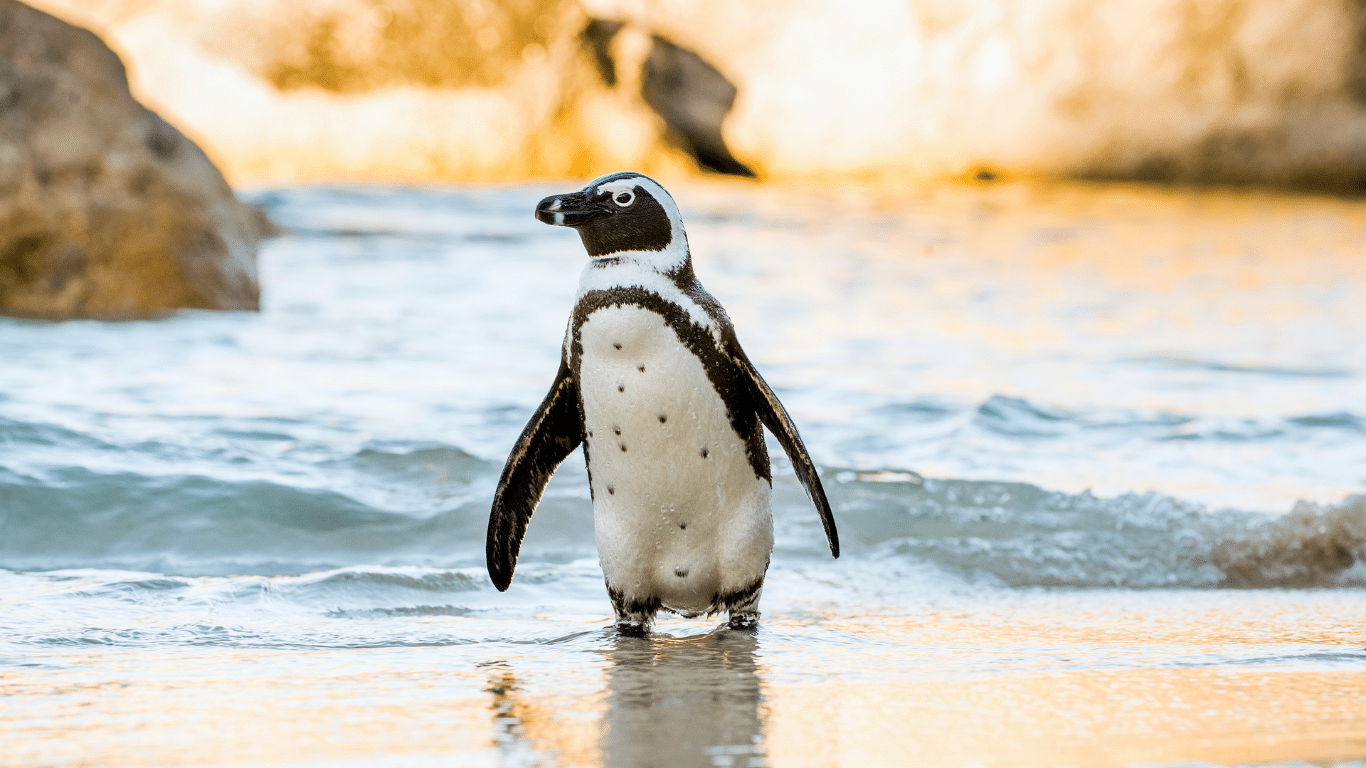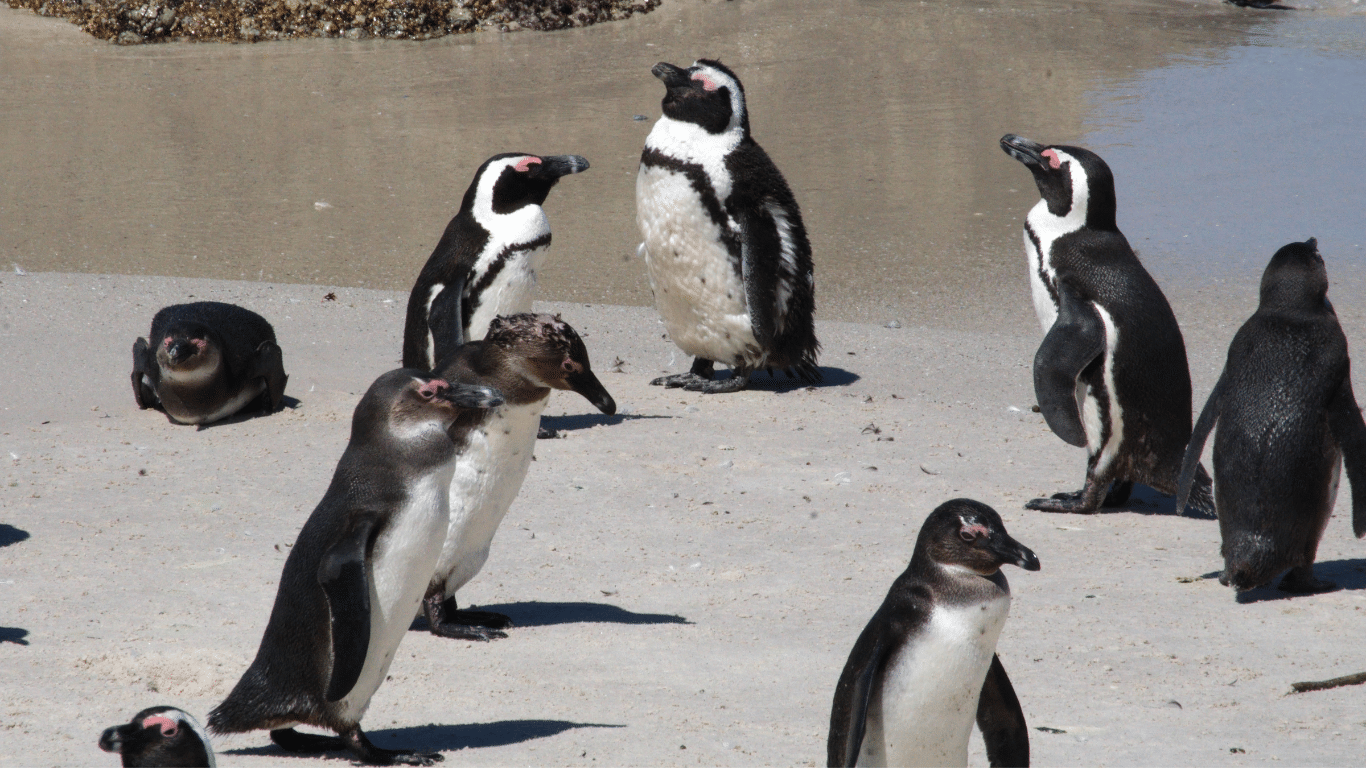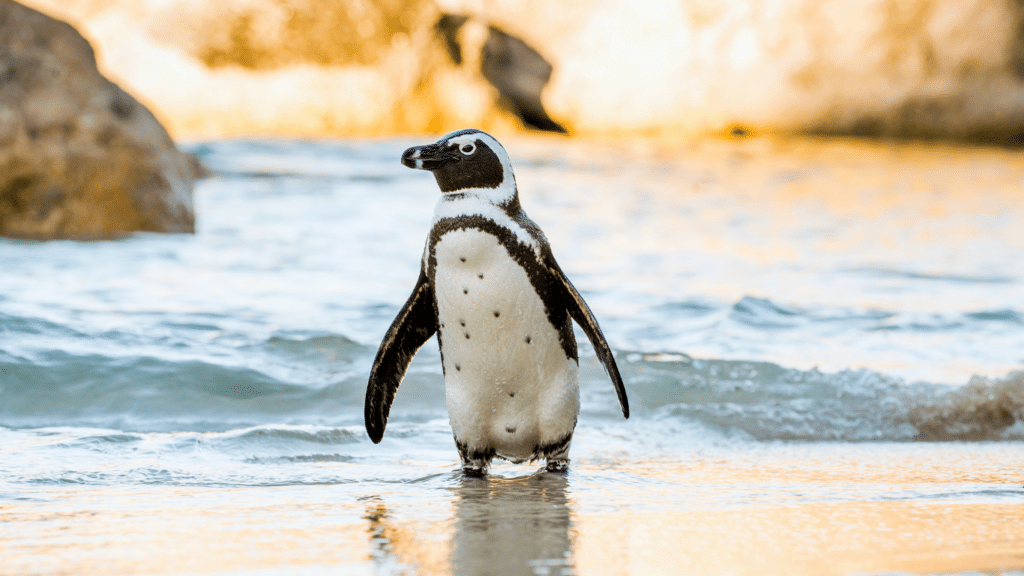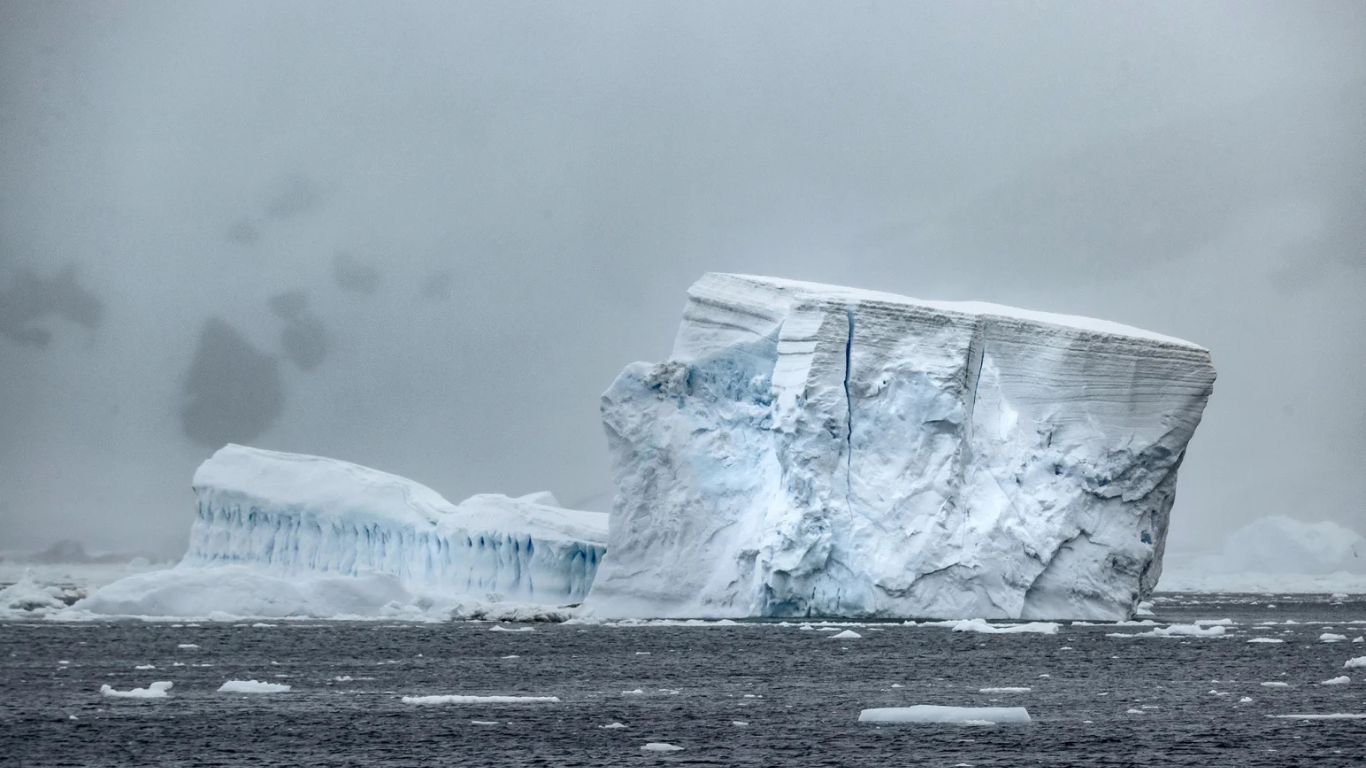Adapted from originally published by Cape Town Ect (Oct 28, 2024)
The African Penguin, with its distinctive black-and-white tuxedo and playful nature, is a cherished symbol in South Africa and around the world, Cape {town} Etc reports.
Yet despite its popularity, the species has been uplisted to Critically Endangered by the IUCN, revealing it is one step away from becoming extinct in the wild. The bird is the first penguin species (of the 18 species globally) to meet the criteria for this classification.
Faced with numerous threats, a primary cause of the African Penguin’s decline is a lack of available food due to climate change, made worse by competition from commercial fishing around its breeding colonies, which impacts the species’ survival and breeding success. While there are existing no-take zones where commercial fishing is prohibited to help the penguins better access the fish they feed on, primarily sardines and anchovies, research by seabird scientists has demonstrated that these zones are currently inadequate for penguin conservation.
The IUCN Red List is the international ‘Gold Standard’ tool for measuring species extinction risk; to date, 163 040 species have been assessed, of which 45 321 are threatened with extinction.
While the Red List indicates the detrimental status of global biodiversity, it also points towards an urgent need for solutions, and the prioritisation of collaborative, cross-sector action before it’s too late.
The current commercial fishery no-take zones in South Africa surround six African Penguin colonies that represent 76% of the global African Penguin population. Yet research finds that these zones fail to sufficiently protect important feeding areas for the penguins, forcing them to compete with commercial fisheries for food.
Scientists such as BirdLife South Africa’s Dr Alistair McInnes and the University of Exeter’s Dr Richard Sherley recommend expanded and achievable no-take zones that provide more substantial benefits to penguins without causing disproportionately high costs to the purse-seine fishing industry.
Two conservation groups have taken action to enforce greater protection of the species. Launched by the Biodiversity Law Centre earlier this year, the two non-profit organisations have instituted a case against the office of the South African Minister of Forestry, Fisheries and the Environment, to challenge the Minister’s ‘biologically meaningless’ island closures to purse-seine fishing around key African Penguin colonies.
The legal action seeks to substitute the existing commercial fishery no-take zones with alternative zones designed using an internationally-recognised process that will better align them to the African Penguins’ important feeding areas, while minimising the impacts on the purse-seine fishing industry.






